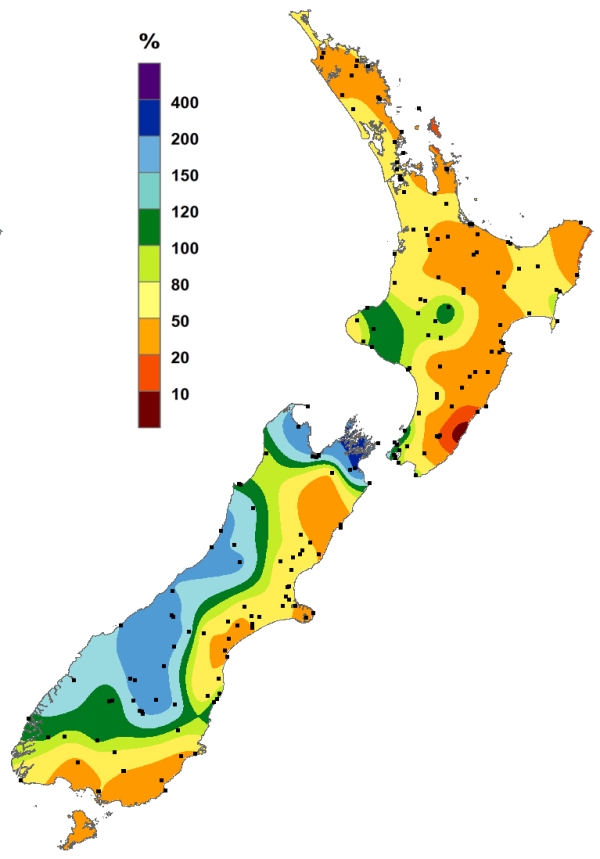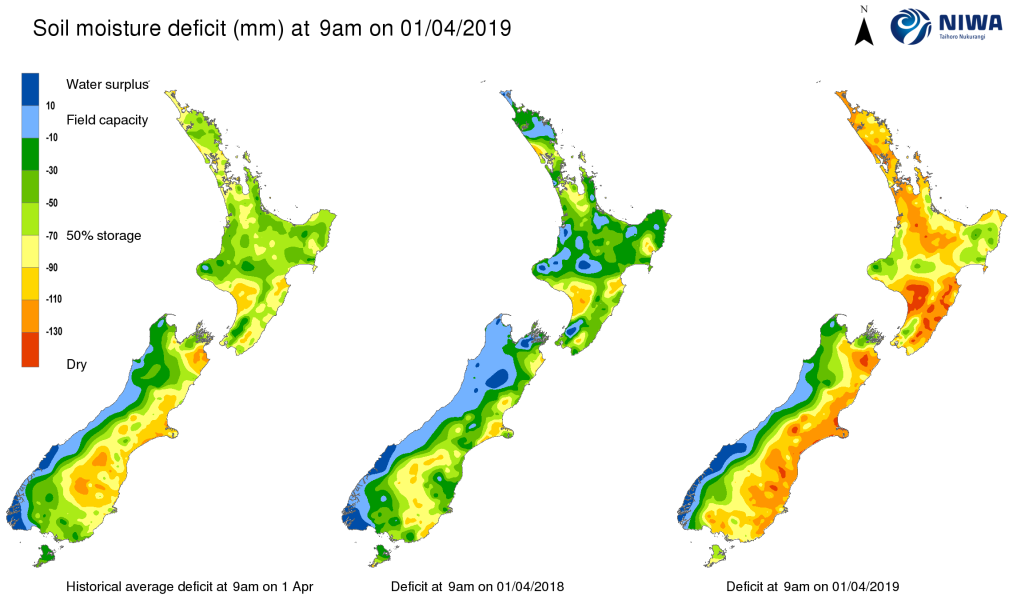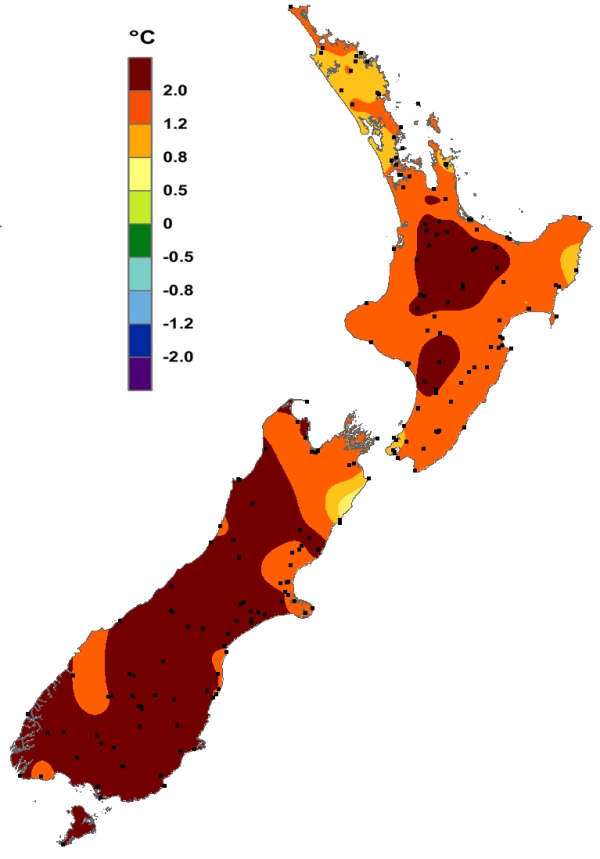March 2019 was characterised by higher than normal mean sea level pressure over and to the east of New Zealand. This pressure set up led to more northeasterly winds than normal across the country. Warmer than average sea surface temperatures persisted throughout March and marine heatwave conditions continued in the Tasman Sea and in parts of New Zealand’s coastal waters.
Temperature
It was New Zealand’s equal 2nd warmest March on record. The nationwide average temperature in March 2019 was 17.6°C. Temperatures were above average (0.51°C to 1.2°C above average) or well above average (>1.2°C above average) across the entire country. Many locations observed record or near-record warm mean, mean maximum or mean minimum March temperatures.
Rainfall
Rainfall was below normal (50-79% of normal) or well below normal (<50% of normal) across much of the North Island. The only exceptions were parts of Taranaki and the Central Plateau along with the Kapiti Coast and Wellington City which observed near normal (80-120% of normal) or above normal (120-149% of normal) rainfall. In the South Island, rainfall was generally above normal or well above normal (>150% of normal) in the west and far north, while the east and far south observed below to well below normal rainfall.
Soil Moisture
As of 1 April, drier than normal soils were present across the majority of the North Island and a large portion of the South Island. Conversely, soil moisture levels were slightly higher than normal in northern Marlborough and Tasman, along with the West Coast, and parts of Otago. Meteorological drought conditions (as defined by the NZ Drought Index) were present in Western Bay of Plenty as of 30 March.



